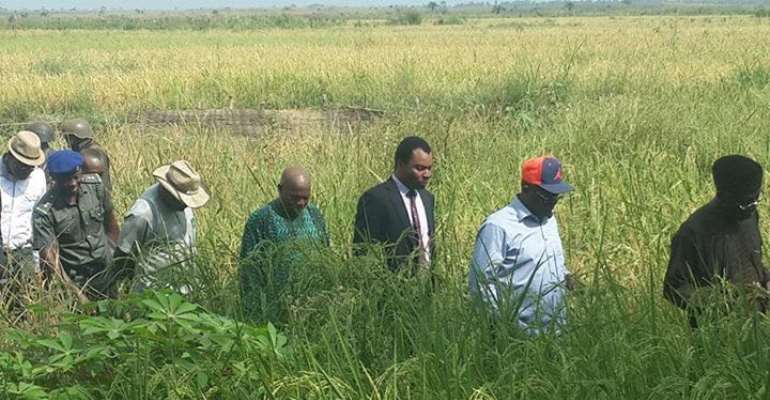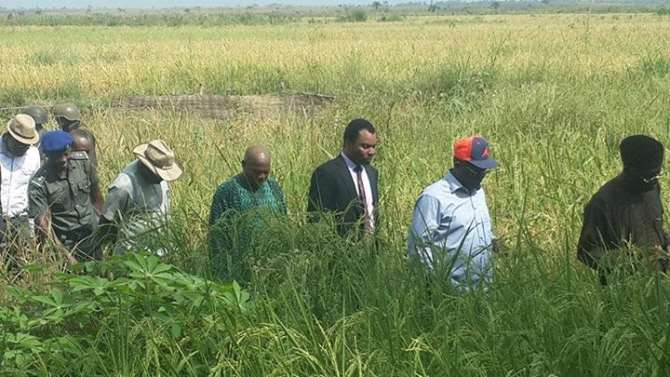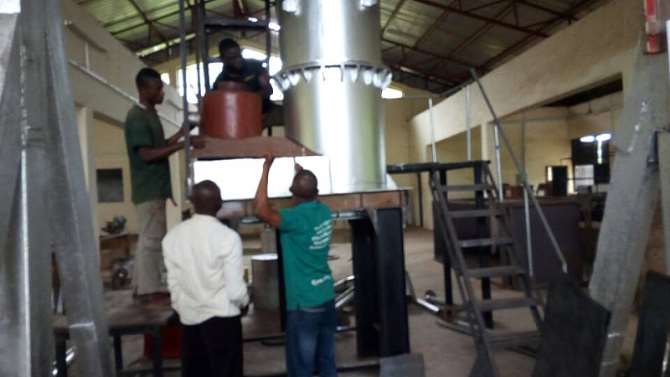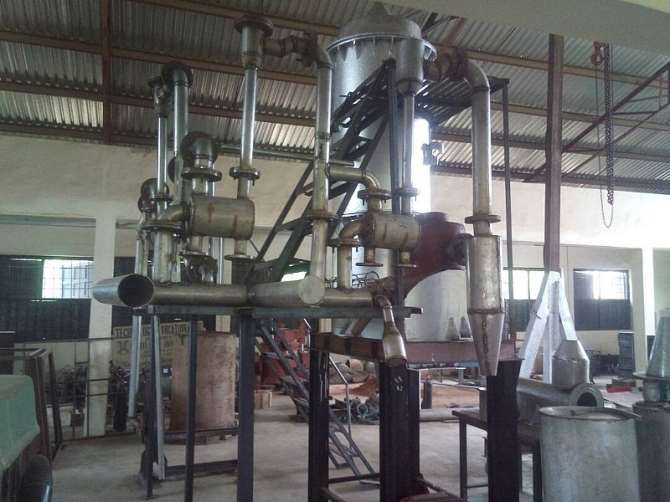Umahism: Taking Ebonyi People To The Fish Pond

It is said that 'if one gives a man a piece of fish, one has fed the man for a moment; but if one teaches a man how to fish, one has fed the man for a lifetime'. This statement which underscores the importance of guiding one's children, dependants, followers or the citizenry of any given society to self-reliance has always been true, is very true even now and will continue to be true till the day of reckoning! The importance of self-reliance in the face of a fluctuating world economy wherein the economies of many developing and African nations [including Nigeria's] have been forced into recession cannot be over-emphasized. Self-reliance is imperative for a state like Ebonyi, which was caught in the crossfires of global economic meltdown and now economic recession before she could be weaned. One can recall that Ebonyi state was created from the most neglected parts of Enugu and Abia states in 1996 by General Sani Abacha. It suffices to say that at creation, Ebonyi state had no index of development. This young agrarian state which journey of development started with the advent of democracy in the fourth republic has witnessed two civilian administrations between 1999 and 2015, while the third and current Divine mandate administration of Engr. David Nweze Umahi which began in 2015 has lasted for about two years in office. Comparative analyses of the revenue profiles of the 36 states and the Federal Capital Territory which make up the Nigerian federation have always proved two things: One, Ebonyi state occupies the bottom rank in the monthly chart of federal revenue allocations from the federation account. Two, internally-generated revenue of Ebonyi state is also one of the lowest in the federation. The practical implication of these facts is that Ebonyi state has been surviving on the periodic allocations from the federation account; and if, for any reason, the federal revenue allocations stop coming, Ebonyi state will have virtually nothing to depend on. With the current economic recession and plans to render our oil useless through the introduction of solar-powered automobiles, the end of the federal revenue allocations is in sight! It is this unfolding scenario that brings to focus the proactive programme of Governor David Nweze Umahi of Ebonyi state to develop an alternative, sustainable economy for Ebonyi state and her people through Agricultural and Industrial revolutions.
Like we know, Ebonyi is an agrarian state. Ebonyi is blessed with a large expanse of arable land and good weather which is conducive to the cultivation of a variety of cash crops like rice, yam, cassava, cucumber, melon, vegetables and many other annual and perennial crops. Before the creation of Ebonyi state, Abakaliki rice had gained popularity and wide patronage throughout the Nigerian federation. All these facts and more which add up to the comparative advantages that Ebonyi state has in farming informed Governor Umahi's agricultural revolution programme which he launched in the early days of his administration. The highlights of this agricultural revolution programme in Ebonyi state include 'one man-one hectare' farming programme, subsidized hire of tractors and other farming equipment, pest control, dry season farming, the supply of high-yielding grains and soil inputs to farmers in a revolving scheme, a buy-back component wherein the crops, especially rice, are bought by the state government from the farmers at the open market price and so on. Like the exemplary leader that Umahi is, he and Ebonyi State Government officials are all involved in the 'one man, one hectare' farming programme, hence Umahi is known as the Farmer Governor of Ebonyi state. To encourage Ebonyi workers to key into the programme, Ebonyi State Government has paid counterpart funds for IFAD and FADAMA III programmes and mapped out the sum of one billion naira as a revolving fund for civil servants who want to go into farming. Added to this was a blanket exemption from duties on Thursdays and Fridays for civil servants who are engaged in farming to enable them tend their farms. A school agricultural programme in which post-primary schools cultivate large expanses of land is also going on. Three major rice mills [one at every senatorial district] with capacity to process five tones of rice on daily basis are on hand to process and package Ebonyi rice for export; while for health and sundry reasons, the sale or consumption of foreign rice in Ebonyi state is officially banned.
For one year that this agricultural revolution has lasted in Ebonyi state, it has succeeded to the extent that there is food sufficiency in Ebonyi state while 'Ebonyi rice world' and Ebonyi yams have become popular staples in menus at national and Continental circles. Ebonyi farmers who smile to the banks at harvest times appreciate Governor David Nweze Umahi just as the federal government commends Ebonyi State Government for the successes recorded by this initiative in Agriculture; but Governor Umahi is not satisfied that pyramids of Ebonyi rice and Ebonyi yam for export have not started appearing. Umahi is not happy that some parcels of land are still uncultivated in Ebonyi state.
In another similar development, Governor David Nweze Umahi introduced an industrial revolution programme aimed at encouraging Ebonyi people to become wealth-creators and employers of labour by exploiting the many opportunities which abound in the availability of raw materials like palm produce, cassava leaves and starches, cashew, moringa seeds and leaves, aloe vera et cetera for cottage industries in order to kickstart the industrialization of Ebonyi state. In a state like Ebonyi which industrial profile contains a moribund concrete industry, a fledgling pipe production company both at Ezzamgbo, a quarry industrial zone at Umuoghara, the modern rice mills and the rice clusters at various locations; an industrial revolution programme of this nature is necessary to create a new crop of entrepreneurs and fortify the alternative revenue base in the making. To make these lofty dreams reality, Governor David Nweze Umahi through a creative partnership with the Bank of Industry provided a whopping sum of four billion naira to be accessed by prospective entrepreneurs at a comfortable interest rate of five per cent upon presentation of bankable business plans in the areas of processing or production. The only condition attached to the financial facility is that the factory or industry must be located within Ebonyi state. Added to this was a dedicated sum of two billion naira to be accessed by civil servants at a low interest rate of five per cent for business and other wealth creation ventures preparatory to the impending transition into the post-oil economy when salaries might peter out into insignificance.
The decision to develop an alternative economy through agricultural and industrial revolutions in Ebonyi state by Governor Umahi is part of the proactive slant which marks out the Divine mandate administration in Ebonyi state, and so, deserves the support and cooperation of all Ebonyi people irrespective of political and ideological persuasions. The good thing is that both the agricultural and industrial revolution programmes are purely developmental programmes designed to secure the future of Ebonyi state and so have no political colourations. Ebonyi workers, women, youths and school-leavers have life-time opportunities in the programmes to become wealth-creators and employers of labour. With the agricultural and industrial revolution programmes, the solid infrastructure and the on-going fabrication of biomass gasification power plants by Ebonyi engineers to provide power at industrial clusters in Ebonyi state, Ebonyi people are fully challenged to embrace the opportunities they offer. If our founding fathers laboured to have Ebonyi state created, it behooves on the present generation to work out the sustainability of Ebonyi state 'in trembling and fear' and 'with all their souls and their might'. This is the challenge of Umahism, and its import is that the light bequeathed to this present generation of Ebonyi state by our founding fathers must not just be kept aglow, rather the light of Ebonyi state must be stoked to full dazzle for the world to see!
A man like Governor David Nweze Umahi who prefers taking his dear Ebonyi people to the fish pond [for the purpose of teaching them how to fish] to the populist trend of giving periodic handouts of fish crumbs to Ebonyi people deserves every support, loyalty and much more.
It is well with Ebonyi state!




